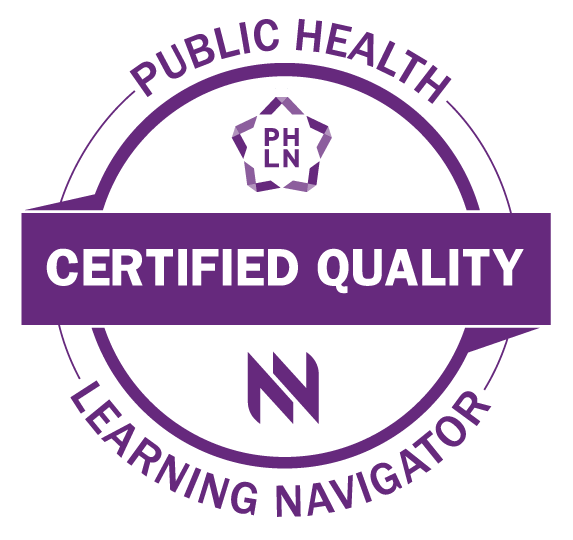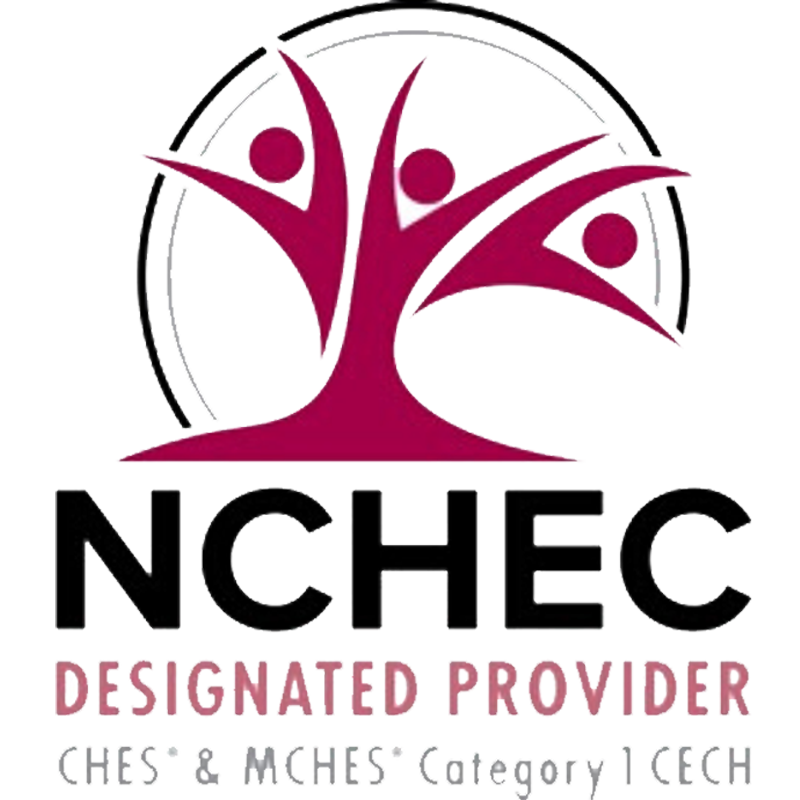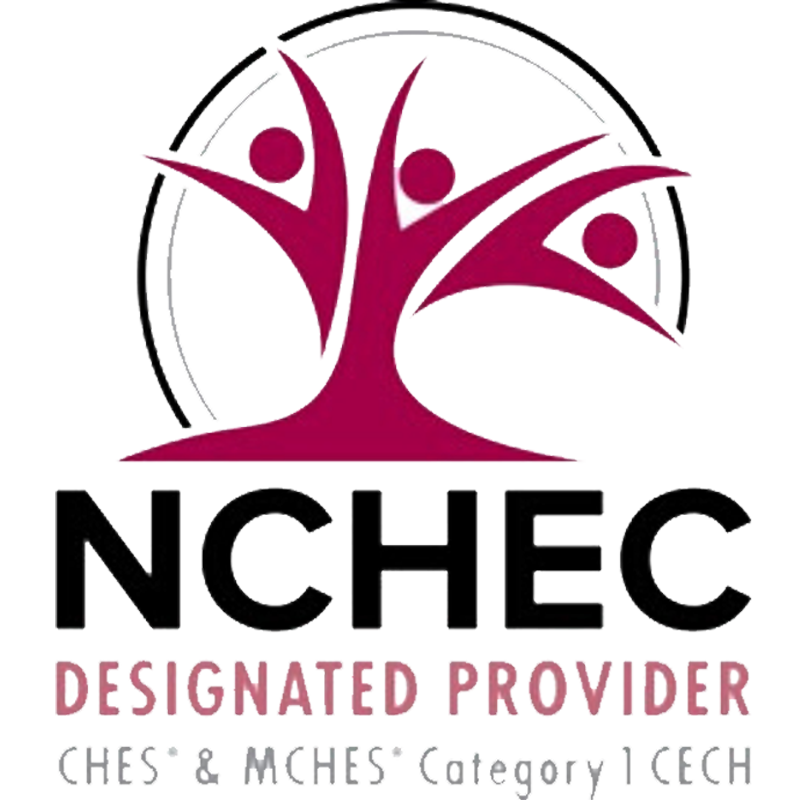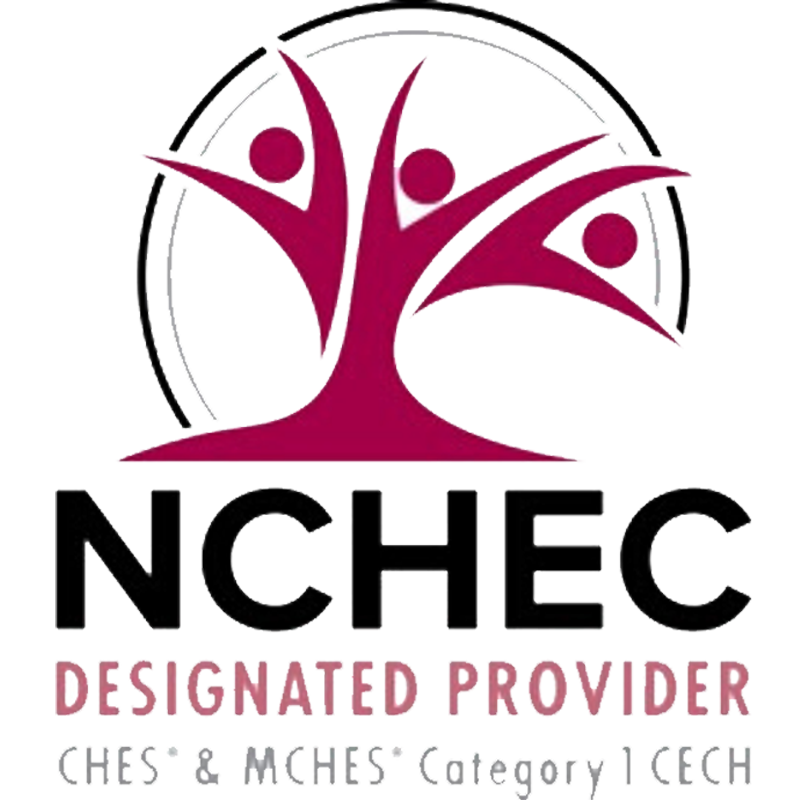
Introducción a los Métodos y Estrategias de Alcance
¿Cómo pueden los trabajadores en el campo de la salud crear planes de alcance efectivos que resuelvan las necesidades de las poblaciones vulnerables? Conoce los componentes clave de un plan de alcance efectivo.



Enroll
Información del Curso
- Formato: Autorregulado
- Costo: Gratuito
- Duración: 1.5 horas
- Credencial(s) elegibles para horas de contacto:
Patrocinado por New England Public Health Training Center (NEPHTC), un proveedor designado de horas de contacto de educación continua (CECH) en educación para la salud por la Comisión Nacional de Credencial de Educación para la Salud, Inc. Este programa está designado para Especialistas Certificados en Educación de Salud (CHES) y/o Especialistas Certificados en Educación de Salud (MCHES) para recibir hasta un total de 1 horas de contacto de educación continua de Categoría I. Las horas máximas de contacto de educación continua de nivel avanzado son 1. ID del proveedor: 1131137 ID del evento: SS1131137_IMEA.
Si no está buscando un horario de contacto de CHES/MCHES, si completa el post-test y la evaluación, recibirá un Certificado de Finalización. El certificado incluirá la duración del curso. - Competencias: Habilidades de Asociación Comunitaria
- Nivel de Aprendizaje: Concientización
- Material Complementario: Guía del Curso y Requisitos Técnicos (PDF)
- Requisitos: Ninguno
Sobre este curso
Como un promotor de salud en la comunidad, una función clave es proveerles cuidados a poblaciones vulnerables para poder conectarlos con los servicios apropiados. Para lograr esto, los trabajadores en el campo de la salud deben identificar cuando debería realizarse una tarea de alcance y como desarrollar un plan de alcance efectivo.
Qué aprenderás
Tras completar este curso, podrás:
- Describir qué son las tareas de alcance y los componentes del Modelo de Alcance de la Salud
- Identificar las cualidades y características de una población vulnerable y qué inicia el trabajo de alcance
- Conocer tips que te mantendrán seguro en tus esfuerzos
- Describir cómo seleccionar métodos y estrategias de alcance efectivos
- Listar los elementos de un plan de alcance efectivo
Experta en el Tema

Dawn Heffernan, RN, MS, CDEDirectora
Western Massachusetts
Public Health Training Center
Horario de Registro y Contacto
El Certificado de Realización incluirá la duración del módulo. Generalmente 50-60 minutos equivalen a 1 hora de contacto. Las horas de contacto pueden utilizarse para cumplir con los requisitos de ciertas credenciales. Confirme con su ente acreditador para verificar si este tema cumple con sus requisitos de educación continua.
¿No puedes acceder al curso? Contacta a support@nephtc.org
Reconocimiento:
Este Proyecto ha sido/fue subsidiado por la Administración de Recursos y Servicios de Salud (HRSA) del Departamento de Salud y Servicios Sociales de los Estados Unidos (HHS) bajo el número de subsidio UB6HP27877 “Programa Centro Regional de Entrenamiento en Salud”. La información, contenido y conclusiones son propias del autor y no deben considerarse como la posición o política oficial del HRSA, HHS o del Gobierno de los Estados Unidos.

Introduction to Ethics for CHWs
What types of ethical dilemmas do you encounter on the job and how do you respond to these dilemmas? If you want more time to reflect on the types of ethical dilemmas faced by CHWs this course will be a good introduction for you.



Course Information
- Audience: Community Health Workers, CHW Supervisors, Health Education Professionals
- Format: Self-paced
- Price: Free
- Length: 1 hour
- Credential(s) eligible for contact hours: Sponsored by New England Public Health Training Center (NEPHTC), a designated provider of continuing education contact hours (CECH) in health education by the National Commission for Health Education Credentialing, Inc. This program is designated for Certified Health Education Specialists (CHES) and/or Master Certified Health Education Specialists (MCHES) to receive up to 1 total Category I continuing education contact hours. Maximum advanced-level continuing education contact hours are 0. Provider ID: 1131137 Event ID: SS1131137_IECHW.
If you are not seeking CHES/MCHES contact hours, if you complete the evaluation, you will receive a Certificate of Completion. The Certificate will include the length of the course. - Competencies: Communication Skills, Health Equity Skills
- Learning Level: Awareness.
- Companion trainings: A Brief Introduction to HIPAA for CHWs, Interviewing
- Pre-requisites: None
- Technical Requirements: This training was created with Articulate Storyline. Please refer to the Articulate 360 System Specifications to ensure your system meets the minimum requirements for viewing.
About this course
Community Health Workers face ethical dilemmas on a daily basis. Ethical challenges can range in severity and in some cases can be quite complex. This short introduction raises awareness of what is an ethical dilemma and equips CHWs with tools to assist them when making decision about the best course of action.
What you'll learn
After completing this course, you will be able to...
- Recognize the definition and purpose of a code of ethics
- Identify conditions for a situation to be considered an ethical dilemma
- List 3 resources available to assist CHWs to make decisions about the best course of action for each ethical dilemma encountered.
Subject Matter Expert
-

Dawn Heffernan
Dawn Heffernan is a nurse and a public health professional who has supervised and trained community health workers for over a decade. Ms. Heffernan is passionate about community health and education. In addition to developing training for the New Public Health Training Center, she is currently working for Partners in Health as a case investigator for the corona virus pandemic.
Enrollment and Contact Hours
Select the Enroll button below to register for the course. If you have any trouble accessing the course, contact support@nephtc.org.
Acknowledgement:
This project is/was supported by the Health Resources and Services Administration (HRSA) of the U.S. Department of Health and Human Services (HHS) under grant number UB6HP31685 “Regional Public Health Training Center Program.” This information or content and conclusions are those of the author and should not be construed as the official position or policy of, nor should any endorsements be inferred by HRSA, HHS or the U.S. Government.

Introduction to HIPAA for CHWs
What are best practices for managing clients' protected health information?



Course Information
- Audience: Community Health Workers, CHW Supervisors, Health Education Professionals
- Format: Self-paced
- Price: Free
- Length: 1 hour
- Credential(s) eligible for contact hours: Sponsored by New England Public Health Training Center (NEPHTC), a designated provider of continuing education contact hours (CECH) in health education by the National Commission for Health Education Credentialing, Inc. This program is designated for Certified Health Education Specialists (CHES) and/or Master Certified Health Education Specialists (MCHES) to receive up to 1 total Category I continuing education contact hours. Maximum advanced-level continuing education contact hours are 1. Provider ID: 1131137 Event ID: SS1131137_IHIPAACHW.
If you are not seeking CHES/MCHES contact hours, if you complete the evaluation, you will receive a Certificate of Completion. The Certificate will include the length of the course. - Competencies: Communication Skills, Health Equity Skills
- Learning Level: Awareness.
- Companion trainings: Introduction to Ethics for CHWs, Interviewing for CHWs
- Pre-requisites: None
- Technical Requirements: This training was created with Articulate Storyline. Please refer to the Articulate 360 System Specifications to ensure your system meets the minimum requirements for viewing.
About this course
By the nature of their role, community health workers manage sensitive information about clients and communities. Community health worker practice relies on laws and protocols to guide their decisions about how to handle client information. One of the most important laws established to protect the privacy and confidentiality of health information is commonly referred to as HIPAA, also known as Health Insurance Portability Act. Note: If working in a HIPAA covered organization this training is only an introduction and you may still be required to attend HIPAA training through your employer. Not all organizations are HIPAA covered entities.
What you'll learn
After completing this course, you will be able to...
- Define HIPAA
- List key components of protected health information
- Identify at least three circumstances where CHWs apply HIPAA during their workday
- Recognize one circumstance when you have an obligation to report HIPAA covered information
Subject Matter Expert
-

Dawn Heffernan
Dawn Heffernan is a nurse and a public health professional who has supervised and trained community health workers for over a decade. Ms. Heffernan is passionate about community health and education. In addition to developing training for the New Public Health Training Center, she is currently working for Partners in Health as a case investigator for the corona virus pandemic.
Enrollment and Contact Hours
Select the Enroll button below to register for the course. If you have any trouble accessing the course, contact support@nephtc.org.
Acknowledgement:
This project is/was supported by the Health Resources and Services Administration (HRSA) of the U.S. Department of Health and Human Services (HHS) under grant number UB6HP31685 “Regional Public Health Training Center Program.” This information or content and conclusions are those of the author and should not be construed as the official position or policy of, nor should any endorsements be inferred by HRSA, HHS or the U.S. Government.

Introduction to Interviewing for CHWs
What interviewing skills do you need to gain insight into the strengths, assets and challenges of your clients and communities?



Course Information
- Audience: Community Health Workers and other public health professionals needing client interviewing skills to capture information relevant to the services offered by your agency/network..
- Format: Self-paced
- Price: Free
- Length: 45 minutes
- Credential(s) eligible for contact hours:
Sponsored by New England Public Health Training Center (NEPHTC), a designated provider of continuing education contact hours (CECH) in health education by the National Commission for Health Education Credentialing, Inc. This program is designated for Certified Health Education Specialists (CHES) and/or Master Certified Health Education Specialists (MCHES) to receive up to .75 total Category I continuing education contact hour. Maximum advanced-level continuing education contact hour is .75. Provider ID: 1131137 Event ID: SS1131137_IICHW.
If you are not seeking a CHES/MCHES contact hours, if you complete the post-test and evaluation, you will receive a Certificate of Completion. The Certificate will include the length of the course. - Competencies: Communication Skills
- Learning Level: Awareness
- Companion trainings: Introduction to HIPAA for CHWs
Introduction to Ethics for CHWs and
Introduction to Outreach Methods and Strategies - Pre-requisites: None
- Supplemental materials: PREPARE Tool
- Technical Requirements: This training was created with Articulate Storyline. Please refer to the Articulate 360 System Specifications to ensure your system meets the minimum requirements for viewing.
About this course
Community Health Worker interviews capture information about client circumstances relevant to the services offered by CHW agencies and/or network. The interview process relies on multiple skills and is one of the most important tools used by CHWs.
What you'll learn
After completing this course, you will be able to...
- Identify a tool used by CHWs to assess Social Determinants of Health (SDH)
- Explain 3 tasks to complete prior to the CHW interview
- Identify skills used in a client interview
- List 2-3 protocols to understand prior to beginning the interview
Subject Matter Expert
-

Dawn Heffernan
Dawn Heffernan is a nurse and a public health professional who has supervised and trained community health workers for over a decade. Ms. Heffernan is passionate about community health and education. In addition to developing training for the New Public Health Training Center, she is currently working for Partners in Health as a case investigator for the corona virus pandemic.
Enrollment and Contact Hours
Select the Enroll button below to register for the course. If you have any trouble accessing the course, contact support@nephtc.org.
Acknowledgement: This project is/was supported by the Health Resources and Services Administration (HRSA) of the U.S. Department of Health and Human Services (HHS) under grant number UB6HP31685 “Regional Public Health Training Center Program.” This information or content and conclusions are those of the author and should not be construed as the official position or policy of, nor should any endorsements be inferred by HRSA, HHS or the U.S. Government.
* Yale School of Public Health, Office of Public Health Practice, a New England Public Health Training Center partner, is a designated provider of continuing education contact hours (CECH) in health education by the National Commission for Health Education Credentialing, Inc. All CHES credit inquiries are managed by YSPH

Introduction to Outreach Methods and Strategies
How can community health workers create effective outreach plans that address the needs of vulnerable populations? Learn about the key components of an effective outreach plan.


Enroll
Course Information
- Format: Self-paced
- Price: Free
- Length: 1.5 hours
- Credential(s) eligible for contact hours: Sponsored by New England Public Health Training Center (NEPHTC), a designated provider of continuing education contact hours (CECH) in health education by the National Commission for Health Education Credentialing, Inc. This program is designated for Certified Health Education Specialists (CHES) and/or Master Certified Health Education Specialists (MCHES) to receive up to 1 total Category I continuing education contact hours. Maximum advanced-level continuing education contact hours are 1. Provider ID: 1131137 Event ID: SS1131137_IOMS.
If you are not seeking CHES/MCHES contact hours, if you complete the evaluation, you will receive a Certificate of Completion. The Certificate will include the length of the course. - Competencies: Community Partnership Skills
- Learning Level: Awareness
- Supplemental materials: Course Guide and Technical Requirements (PDF)
- Pre-requisites: None
- Technical Requirements: This training was created with Articulate Storyline. Please refer to the Articulate 360 System Specifications to ensure your system meets the minimum requirements for viewing.
About this course
As a community health outreach worker, a key function of the role is providing health outreach to vulnerable populations in order to connect them with the appropriate enabling services. In order to do so, community health workers must be able to identify when outreach should occur and how to develop the most effective outreach plan.
What you'll learn
After completing this course, you will be able to...
- Articulate what outreach is and the components of the Health Outreach Model
- Identify qualities and characteristics of vulnerable populations and what triggers outreach
- List tips to keep you safe in your outreach efforts
- Describe how to choose effective outreach methods and strategies
- Outline the elements of an effective outreach plan
Subject Matter Expert

Dawn Heffernan, RN, MS, CDEDirector,
Western Massachusetts
Public Health Training Center
Enrollment and Contact Hours
Note there are two different options for enrolling in this course highlighted in the table below.
The Certificate of Completion will include the length of the module. Generally 50 – 60 minutes is equivalent to 1 contact hour. Contact hours may be applicable towards continuing education requirements for certain credentials. Check with your credentialing body to verify if the topic meets its continuing education requirements.
Having trouble accessing the course? Contact support@nephtc.org
Acknowledgement:
This project is/was supported by the Health Resources and Services Administration (HRSA) of the U.S. Department of Health and Human Services (HHS) under grant number UB6HP27877 “Regional Public Health Training Center Program”. This information or content and conclusions are those of the author and should not be construed as the official position or policy of, nor should any endorsements be inferred by HRSA, HHS or the U.S. Government.

Trauma-Informed Conversations
What does resiliency-building look like in the context of your everyday conversations with clients?


Course Information
- Audience: Community Health Workers, CHW Supervisors, Health Education Professionals
- Format: Self-paced
- Price: Free
- Length: 45 minutes
- Credential(s) eligible for contact hours:Certificate of completion
- Competencies: Communication Skills
- Learning Level: Awareness.
- Companion trainings:
- Pre-requisites: None
- Technical Requirements: This training was created with Articulate Storyline. Please refer to the Articulate 360 System Specifications to ensure your system meets the minimum requirements for viewing.
About this course
Trauma-Informed Conversations (or TIC) are particularly important when working with vulnerable clients or patients. A trauma-informed approach acknowledges that individuals are made vulnerable by the ways our social systems are designed and recognizes that each individual processes and reacts to trauma differently.
In this course we will discuss trauma and resiliency and provide practical tips for Community Health Workers and other providers on how to act as facilitators, connectors, and supportive teammates in advancing a client’s particular goals for their
clinical care or general health.
What you'll learn
After completing this course, you will be able to...
- Describe trauma and resiliency
- Identify different stress responses that are common in individuals
- Identify strategies for conducting trauma-informed conversations
-

Samantha Calero
Samantha Isabel Calero (Sam, she/her) is a biracial Latinx public health consultant. Her work includes training and facilitation, technical assistance, policy analysis and development and organizational capacity building to address trauma, resiliency, racial and gender justice. She approaches her work with an intersectional, margins-to-center lens of relationship building and critical analysis for change. Sam is a member of Mijente and currently is completing her master's degree in health policy at the Harvard T.H. Chan School of Public Health. She lives in Roxbury with her daughter.
Enrollment and Contact Hours
Select the Enroll button below to register for the course. If you have any trouble accessing the course, contact support@nephtc.org.
Acknowledgement:
This project is/was supported by the Health Resources and Services Administration (HRSA) of the U.S. Department of Health and Human Services (HHS) under grant number UB6HP31685 “Regional Public Health Training Center Program.” This information or content and conclusions are those of the author and should not be construed as the official position or policy of, nor should any endorsements be inferred by HRSA, HHS or the U.S. Government.

Use of Public Health Concepts and Approaches
What is public health? How do community health workers fit into the public health framework?

Enroll
Course Information
- Format: Self paced
- Price: Free
- Length: 2 hours
- Credential(s) eligible for contact hours: Sponsored by New England Public Health Training Center (NEPHTC), a designated provider of continuing education contact hours (CECH) in health education by the National Commission for Health Education Credentialing, Inc. This program is designated for Certified Health Education Specialists (CHES) to receive up to 1 total Category I continuing education contact hours. Maximum advanced-level continuing education contact hours are 0. Provider ID: 1131137 Event ID: SS1131137_UPHCA.
If you are not seeking CHES contact hours, if you complete the evaluation, you will receive a Certificate of Completion. The Certificate will include the length of the course. - Competencies: Analytical/Assessment, Communication Skills, Community Dimensions of Practice, Cultural Competency
- Companion Trainings: The 10 Essential Public Health Services in Action
Introduction to Outreach Methods and Strategies - Learning Level: Awareness
- Supplemental materials: None
- Pre-requisites: None
- Technical Requirements: This training was creating using HTML5. We recommend using the latest version of Google Chrome, Microsoft Bing or Mozilla Firefox for the best viewing experience.
About this course
In this course, learners will learn more about “what is public health", add to what they already know about public health and medical systems, gain a better understanding about the importance of public health and how community health workers fit into
the public health framework.
What you'll learn
After completing this training, you will be able to:
- Explain what is public health and why it is so important.
- Describe how public health has impacted life expectancy over the past century.
- Identify the types of public health challenges faced by vulnerable populations.
- Name the various parties and agencies involved in a public health infrastructure
- Provide an example of how data is used in public health policy
- Distinguish between health equity and health disparity
- Explain how the social determinants of health impact health equity
- List at least four priority topic areas of the Healthy People 2020 initiative
- Demonstrate how the public health pyramid can be used to develop a comprehensive intervention
- Discuss important considerations when developing a public health plan for your community.
Subject Matter Experts
Dawn Heffernan, RN, MS, CDEDirector, Western Massachusetts
Public Health Training Center
Enrollment and Contact Hours
Note there are two different options for enrolling in this course highlighted in the table below.
The Certificate of Completion will include the length of the module. Contact hours may be applicable towards continuing education requirements for certain credentials. Check with your credentialing body to verify if the topic meets its continuing education requirements.
Having trouble accessing the course? Contact support@nephtc.org







